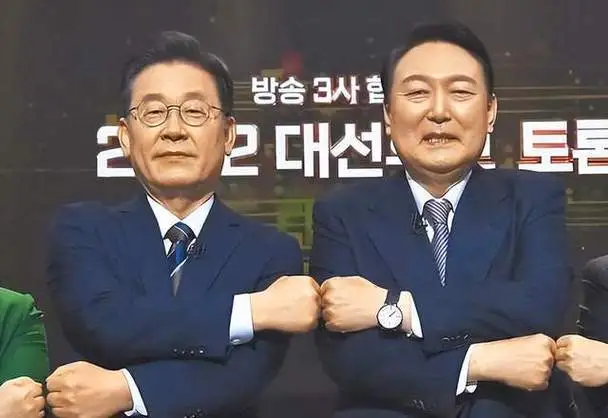
On April 29, 2024 local time, South Korean Opposition Party leader Lee Jae-myung and South Korean President Yoon Seok-yuol held talks at the Yongsan Presidential Palace in Seoul. The talks took the form of a tea party. The talks focused on two major topics: "Measures to restore people's livelihood" and "changing the direction of governance."
During the talks, Lee Jae-ming, the leader of the South Korean opposition party, exerted pressure on Yin Xiyue in a variety of ways, which was reflected in the following aspects: First, seize the issue: Li Jae-ming in the talks, put forward his own views and criticisms on the policy direction of the Yin Xiyue government, especially on issues such as medical reform and medical school expansion. He stressed the need for medical reform policies and pointed out that the Yin Xiyue government's positions and practices on these issues are problematic; Second, public criticism. Before and after the meeting, Lee repeatedly publicly criticized the foreign policy of the Yoon administration, especially in handling relations with the United States and Japan, arguing that the Yoon administration was too inclined toward these countries and ignored South Korea's national interests. He also criticized Yoon's remarks on Taiwan-related issues, saying they may have a negative impact on Korea-China relations. The third is to launch a public opinion offensive: Lee Jae-myeong's Minjoo Party used its dominant position in the National Assembly to launch a public opinion offensive through the media and social platforms to criticize the policies of the Yoon Seok-yue government and appeal to the public's dissatisfaction and concerns about the government. This kind of public opinion offensive has formed a certain pressure on the Yin Xiyue government. Finally, Lee also made specific allegations against the people and events around Yin Xiyue, such as asking for an investigation into First Lady Kim Gun-hee's alleged "manipulation of stock prices for personal gain." Such accusations against people and events close to Yin Xiyue are aimed at undermining Yin Xiyue's authority and influence and applying further pressure.
During the meeting, Lee made it clear that he hoped Yun would respect the public opinion that demands a change in the tone of state administration, as reflected in the general election. He expressed regret over Yoon's veto of the special bill related to the Itaewon massacre and the independent prosecution bill, and asked Yoon to promise to respect the National Assembly's decision. He also urged Yoon to thoroughly investigate controversial cases such as the mysterious death of a Marine, and hoped to take this opportunity to comb through various suspicions surrounding people such as his family. Mr. Yin nodded from time to time during the meeting, but he did not explicitly say whether he would approve the relevant parliamentary legislation. A senior official in the presidential office said that livelihood issues are the top priority, and Yoon will sincerely listen to Lee's suggestions, but directly asking the president to accept the independent counsel bill is not in line with democratic procedures.
Despite the undercurrent of the talks, it is also of great significance for the two parties in South Korea, conveying several important signals: First, the willingness of the two sides to communicate: This meeting is the first direct dialogue between Yoon Seok-yuek and Lee Jae-myung after taking office as president, showing that the two sides attach great importance to communication and the willingness to solve problems. This will help ease previous tensions between the two sides and lay the groundwork for possible future cooperation.
Secondly, during the talks, the two sides discussed livelihood issues, including healthcare reform, which shows that the Yin administration is willing to listen to the concerns of the opposition parties on livelihood issues and seek joint solutions. At the same time, this shows the opposition party's determination and influence in promoting livelihood policies.
Finally, a policy compromise is possible. A senior official of the South Korean presidential office said that people's livelihood issues are the top priority, and Yoon will sincerely listen to Lee Jae-myung's suggestions. This indicates that the Yoon administration may consider the opposition party's opinions on some policies and make some compromises. This will help reduce the obstacles and disputes in the implementation of policies and improve the effectiveness of policies.
The meeting was Yoon's first with Lee since he took office in May 2022, and although no concrete agreement was reached, it laid the foundation for future communication and cooperation between the two sides.

German Foreign Minister Waldorf emphasized the importance of transatlantic relations before his visit to Washington on Sunday (January 11th).
German Foreign Minister Waldorf emphasized the importance o…
The Thai People's Party, which leads in voter support, rele…
US President Trump warned Cuba, "Hurry up and reach an agre…
Israeli Prime Minister Netanyahu said at a government meeti…
Israel and Germany signed a security agreement to expand co…
On January 4th local time, Trump warned India that if it do…